[caption id="attachment1889" align="alignright" width="386"][](https://cdn.ecohustler.com/media/2019/03/19/Sunset-by-Tomer-Hanuka.jpg) Sunset-by-Tomer-Hanuka[/caption] This Page is a chapter taken from the excellent history of the environmental movement; Rising Tides by kind permission of the author Rory Spowers. **The fact that we** have become more preoccupied with brand logos than the preservation of the biotic systems on which our lives depend, suggests that we have somehow forgotten who and what we are and where we came from. As world fisheries collapse around us, rainforests burn to the ground, the ozone layer disappears, whole countries are devastated by climate change and our agricultural systems face one crisis after another, we ignore the reality of what is staring us in the face. The planet is on fire but most of us have yet to notice. Many dismiss the ecological meltdown that surrounds them as being blown out of all proportion by radical alarmists, or that doing anything about it is entirely beyond their control. Some still maintain that it is not really happening at all, due to ignorance, psychological defences and spurious scientific data circulated by industries which feel threatened. [](https://cdn.ecohustler.com/media/2019/03/19/buy-now-pay-later.jpg)Compulsive patterns of consumption have become society’s universal drug addiction and we have developed all manner of sophisticated psychological responses to perpetuate our collective denial. We have somehow separated ourselves from Nature to such a degree that we have forgotten just how dependent upon it we are in every moment of our lives. All the material wealth in the world is of little value to anyone if the natural systems which support life can no longer provide food and water for our basic existence. Few us would ever deny that we evolved from the natural systems that support us but, throughout most of our daily lives, we seem to have forgotten this basic fact. Jed Swift, an American eco-psychologist, believes that it has been “emotionally and educationally drummed out of us.” As we have already seen, numerous theories have been developed to explain how, why and when this separation occurred, ranging from the ‘original trauma’ of the Agricultural Revolution to the dualistic philosophy of Descartes and Newtonian science. The important issue that confronts us now though is, not how this sense of separation started, but how we can heal it. How can we redefine our sense of self so that we can make the transition from an ego-centric dualistic perception of the world to an all inclusive eco-centric experience?  Virtually everyone on the planet believes themselves to be the mind-body organism which they have identified themselves with since an early age, usually about two and a half. We understand ourselves to be this limited, separate, individual entity, which was born to certain parents and one day will die. If someone asks “Who are you?”, we tend to respond with a name and some auto-biographical details about where we live and what sort work we do. However, if we examine this assumption we find that it is the most basic illusion of all. What you are is quite clearly not a name. Those are just words. Similarly, if we look closely at the notion of being limited to an organism consisting of a mind and a body, we again fail to locate our original essence. Every cell in our body is replaced every seven years so there is no continuity of Matter. If we examine those cells under an electron microscope, we find nothing but vibrating patterns of energy which, upon further scrutiny, prove to be alternating between polarised states of Nothingness and Beingness, between the noumenal and phenomenal modes of manifestation. Likewise, when the mind is quiet, when there is an absence of thought - in meditation or the state of deep, dreamless sleep - where have we gone? Who or what is it that wakes up and says it slept well or badly? [caption id="attachment1895" align="alignright" width="360"]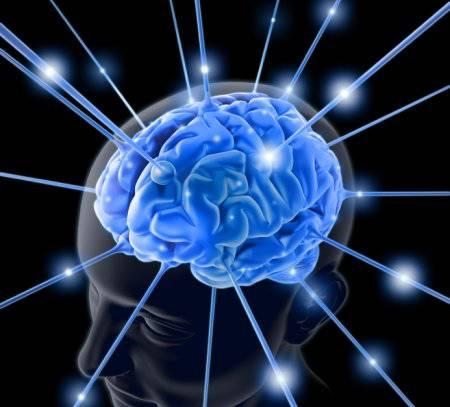 Consciousness goes beyond the brain[/caption] Basic logic also reveals that we cannot be limited to the mind or the body. For something to be observed, there has be an observer and that which is observed. Since both the body and the mental processes of the mind can be observed, the obvious inference is that we are something transcendent to, but immanent within both. What we ultimately are, when we strip away the concepts, thoughts and ideas about who we think we are, is pure awareness, the witnessing consciousness itself. Our real nature is that which is prior to thought, conceptualisation and articulation. It is the screen on which the diversity of life is projected. When the images stop rolling, the screen remains the same as it ever was. Everything else in the entire universe is included within, or super-imposed upon, this screen of awareness, which Peter Russell calls “the canvas of the mind.” Prior to birth, during deep sleep and after death, consciousness is unaware of itself. During the waking state, consciousness, as it functions through all sentient beings, becomes aware of itself. In the human organism, it has the additional capacity for self-reflection, which gives rise to the fears and desires which we ascribe to the ego. [caption id="attachment1896" align="alignleft" width="300"][](https://cdn.ecohustler.com/media/2019/03/19/the-planet-earth.jpg) Gaia[/caption] The ego is that which believes itself to be a three-dimensional object, an individual entity engaged in a struggle with an objective world from which it is entirely separate. Ecology suggests that this is a misconception. The human organism is continuaìlly interacting with the natural world as part of a fluid and inter-connected system. Experiments have shown how the body responds to changes in barometric pressure, often feeling tired just before the onset of rain. Like the planet itself, thousands of bio-chemical processes are in an endless dynamic flow with external factors, insuring that the body regulates itself according to environmental conditions. As Ralph Metzner says, “We are part of Nature; we are in the earth, not on it. We are like cells of the vast living organism that is planet earth.” The human body is a microcosmic cell within Gaia itself. Not only do we contain the same proportion of water as the planet, but our levels of salinity are the same. However, as Metzner observes, “An organism cannot continue to function healthily if one group of cells decides to dominate and cannibalize the other energy systems of the body.” [caption id="attachment1918" align="alignright" width="300"]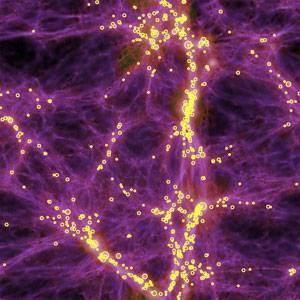 The underlying structure of the universe is patterns of energy[/caption] Like ecology, quantum physics suggests that there is no physical reality to the egoic structure. Physical reality has been reduced to an energetic background of vibrating particles, oscillating in out of pure nothingness, the noumenal or potential aspect of consciousness. “To understand the nature of subatomic matter or light,” says psychologist Stanislav Grof, “you have to accept that they are phenomena which can have characteristics of both particles and waves.” With their Santiago Theory, two Chilean neuroscientists, Humberto Maturana and Francisco Varela, have reached similar conclusions about the illusory nature of the psychological construct with which we identify: “According to the Santiago Theory, we bring forth the self just as we bring forth objects. Our self, or ego, does not have any independent existence but is a result of our internal structural coupling.” For Fritjof Capra, this is “the crux of the human condition–”, because “when we look for an independent self within our world of experience we cannot find any such entity.” Grof accepts that, on a reductionist level we are “Newtonian objects, highly developed biological thinking machines”, but from a holistic point of view, “we are also infinite fields of consciousness that transcend time, space and linear causality.” The medical scientist Larry Dossey believes that “we have been labouring under some fairly dismal and erroneous assumptions about ourselves” and “the most erroneous assumption is that we are separate individuals.” 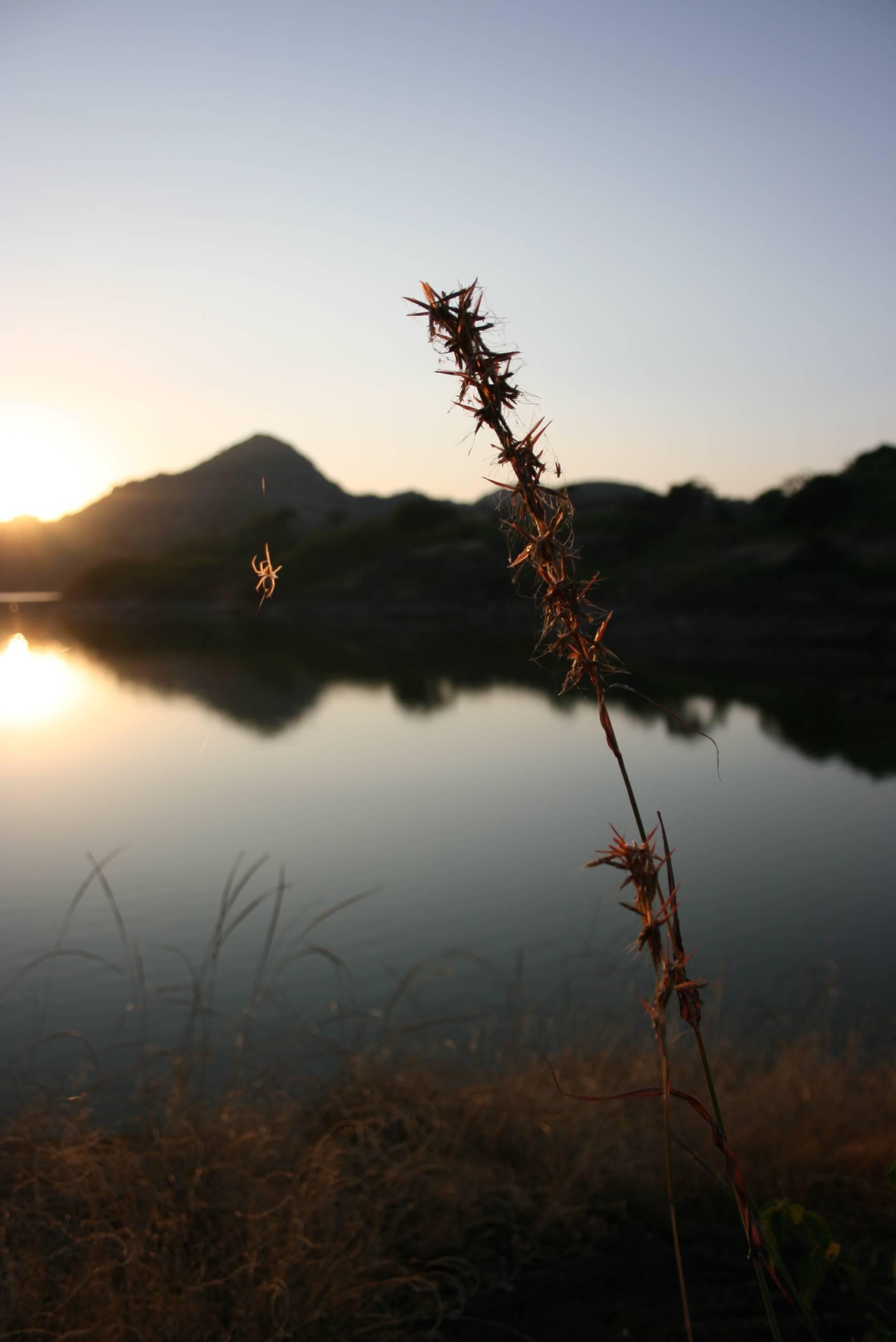 This alternative view of the world was neatly summarised by the anthropologist and visionary thinker Gregory Bateson, who drew the distinction between two syllogisms. The first syllogism states: “Men die. Socrates is a man. Socrates will die.” The second syllogism goes like this: “Grass dies. Men die. Men are grass.” As Bateson acknowledged, the second syllogism strikes one as being plain illogical, and our reaction is that “it’s the way schizophrenics think, and we should avoid it.” He then identifies the difference between the two. Whereas the Socrates syllogism is concerned with the classification of subjects, identifying Socrates as a man, the grass syllogism is only concerned with “predicates”, with what happens to those subjects. Bateson proposes that the first syllogism is purely a human construct, concerned with the subject of a sentence, and has only been relevant since mankind separated itself from Nature through the invention of language. Previously, organisms in the natural world functioned quite happily with the second syllogism: “They managed to organize themselves in their embryology to have two eyes, one on each side of a nose. They managed to organise themselves in their evolution. So there were shared predicates between the horse and the man, which zoologists today call homology. And it became evident that metaphor was not just pretty poetry, but was in fact the logic upon which the biological world had been built, the main characteristic and organizing glue of this world of mental processes.” 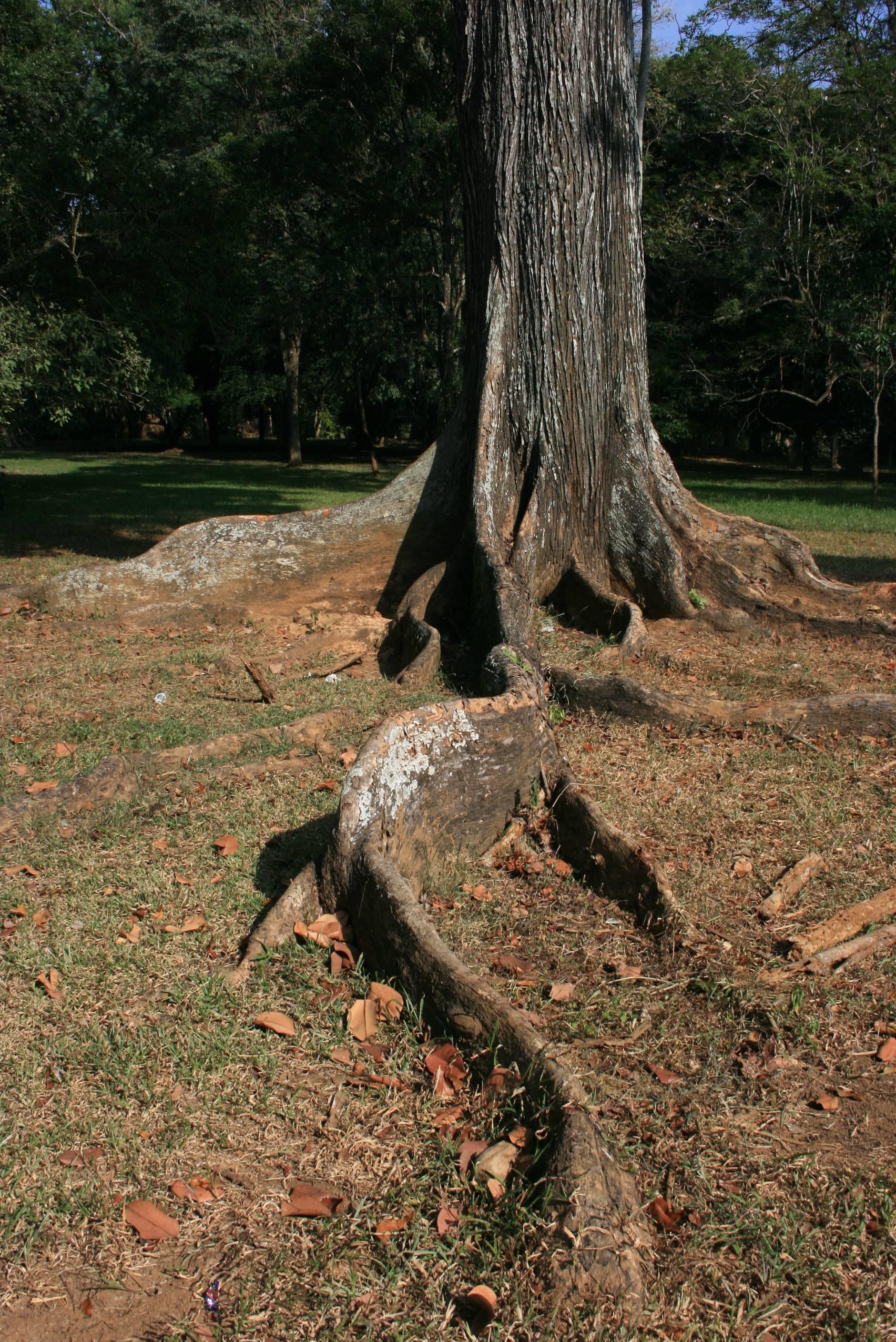 Through our obsession with the individual, with being the subject of our own world, we have super-imposed an imagined subjectivity onto patterns and processes which function totally independently of what we think we are. In doing so, we have quite unwittingly divorced ourselves from reality. Modern science is therefore confirming the biggest illusion of all - that we are not what we think we are. As activist and writer Joanna Macy observes, by challenging these basic assumptions, we are seeing the gradual emergence of an ‘ecological self’: “First, the conventional small self, or ego-self is being impinged upon by the psychological and spiritual effects we are suffering from facing the dangers of mass annihilation. The second thing working to dismantle the ego-self is a way of seeing that has arisen out of science itself. It is called the systems view, stemming from general systems theory of cybernetics. From this perspective, life is seen as composed of self-organizing systems, patterns that are sustained in and by their relationships. The third force is the resurgence in our time of non-dualistic spiritualities.” [caption id="attachment1898" align="alignleft" width="254"][](https://cdn.ecohustler.com/media/2019/03/19/Advaita-Master-Ramesh-Balskar.jpg) Advaita Master Ramesh Balskar[/caption] For thousands of years, Indian yogis, Islamic sufis, Christian mystics, Zen Buddhists and tribal shamen have all pointed to the same basic truth; that the ego has no independent existence; that it is a fictional entity, created by repetitive socio-environmental conditioning. When Self-realisation, Awakening, or Enlightenment occurs, there is the instant apperception that the ego never really existed in the first place. Ramana Maharshi, an Indian saint in the non-dualist tradition of advaita, maintained that “The world is illusory; Brahman alone is real; Brahman is the world.” Brahman is Consciousness, God, Energy, the Self, the Source, the Absolute, whatever name you want to ascribe to that which is beyond name and form, which cannot be expressed, communicated or even talked about without losing its non-dual nature. Ken Wilber, the acclaimed American transpersonal psychologist who has been hailed as “the greatest philosopher of our time”, points out that “This profound realisation is what separates Ramana’s genuine Enlightenment from today’s many pretenders to the throne - Deep Ecology, Eco-feminism, Gaia revivals, Goddess worship, Eco-psychology, Systems Theory, Web of Life notions - none of which have grasped the first two lines, and therefore, contrary to their sweet pronouncements, do not really understand the third, either.” As Wilber observes, no dogma, teaching or set of concepts can ever be the Truth, they can only point towards it. Truth cannot be contained, it can only happen. This revelation can only emerge in the absence of that which would contain it, understand it, or categorize it. Only with the final dissolution of the ego, and the sense of separation, can the eternal and infinite presence be revealed. Only then does the final understanding dawn, that Consciousness, or Energy, is the Ground of all Being, the substratum of the entire physical universe and ultimately all that there is. [](https://cdn.ecohustler.com/media/2019/03/19/sri-lanka-6-357.jpg) The obvious question that arises is where does freewill fit into this equation. If the ego has no independent existence, how do we make choices in our lives? Again, modern science suggests that our sense of volition is determined by an interaction between our genetic predisposition and the socio-environmental conditioning which is part of a constantly flowing dynamic. Bio-chemical impulses and hormonal changes in the body have a direct impact on our emotional moods. The organism reacts and responds to external events according to the way in which it is constantly being re-programmed by a combination of these factors. Just because you can raise your hand in the air when the thought arises does not validate the notion that the thought is controlled by an independent entity. Neuroscientists like Benjamin Libet have shown that the brain registers a thought nearly half a second before we become conscious of it. The psychologist Susan Blackmore maintains that “conscious sensation comes too late to play any useful role in actions” and describes the ego as nothing more than “a construction, created by language.” As we have already seen, the role of the independent, autonomous ego has been removed from the equation. It simply is not there. Just because most people believe that the ego exists does not validate it’s existence. As Anatole France said, “If fifty million people say a stupid thing, it’s still a stupid thing.” It certainly seems to exist, but so does the sea seem to be blue and the sun appear to move through the sky. We are quite happy to accept these illusions for being what they are - even though we know them not be true - and this is precisely what the non-dual traditions suggest we do with the ego. Accept that it does not really exist but continue to live life as if does; accept the fact that, ultimately there is no freewill but continue to live as if there is. As the physicist Neils Bohr pointed out, “the opposite of one profound truth may well be another profound truth.” Matt Ridley, a leading geneticist and science writer, observes how “full responsibility for one’s actions is a necessary fiction without which the law would flounder, but it is a fiction all the same. To the extent that you act as in character you are responsible for your actions; yet acting in character is merely expressing the many determinisms that caused your character. David Hume found himself impaled on this dilemma, subsequently named Hume’s fork. Either our actions are determined, in which case we are not responsible for them, or they are random, in which case we are not responsible for them. In either case, common sense is outraged and society impossible to organise.” However, as Huxley points out, we should not despair and interpret this as nihilism, since “nothing in our everyday experience gives us much reason to suppose that the mind of the average sensual man has, as one of its constituents, something resembling, or identical with, the Reality substantial to the manifold world; and yet, when that mind is subjected to certain rather drastic treatments, the divine element, of which it is in part at least composed, becomes manifest, not only to the mind itself, but also, by its reflection in external behaviour, to other minds.” [caption id="attachment1920" align="alignright" width="400"] Whale[/caption] Therefore, when the fiction of the ego is truly accepted, nothing actually changes. Life goes on just as before. As Macy says, “This ecological self, like any notion of selfhood, is a metaphoric construct and a dynamic one. It involves choice; choices can be made to identify at different moments, with different dimensions or aspects of our systemically interrelated existence - be they hunted whales or homeless humans or the planet itself.” When the whole notion of an individual, separate existence is entirely and irrevocably dissolved, the distinction between an ego-self and the eco-self dissolves with it, revealing the fact that the entire universe is contained within us. Reacting against the notion of illusory freewill, by interpreting it as nihilistic or complacent, is to miss the point. The instinctive ego response is: “What’s the point of doing anything?” However, if we try and ‘do nothing’, we soon find that this is quite simply impossible. The body and mind have instinctive, integral energy. The mind chatters. The body becomes restless. There are bodily functions which need to be attended to. Interpreting this concept in this way is an egoistic reaction against it rather than an intuitive understanding. This is only conceptual anyway, limited as it is by the dualistic framework of language. The Truth that it poNints to is beyond polarities and opposites. As Ramana Maharshi concludes, “There is neither creation nor destruction, neither destiny nor freewill; neither path nor achievement; this is the final Truth.” [caption id="attachment1921" align="alignleft" width="288"][](https://cdn.ecohustler.com/media/2019/03/19/Alex-Grey-Mind.gif) Alex Grey, Mind[/caption] In the 1920’s, quantum physics found it impossible to distinguish particles from waves at a sub-atomic level. Heisenberg proposed that the observer cannot be separated from the observed, that “What we observe is not Nature itself, but Nature exposed to our method of questioning.” Religious traditions that create a division betwen Man and God are dividing Man from Nature, Energy and Consciousness, therefore perpetuating a sense of bondage rather than pointing towards our liberation. This division has been a very useful way for religions to exert power and authority over the population. Like ecology and quantum physics, the Truth that the Perennial Philosophy points to is that there are no boundaries; All is One, all is God, all is Consciousness. The ego tends to leave itself out of the equation and maintain separation, but the understanding is that the appearance of the ego is itself part and parcel of the whole dynamic. Heaven and Hell, Nirvana and Samsara, are one and the same. Father Bede Griffiths, a Christian monk who lived most of his life in south India, believed that the non-dual tradition of advaita to be “the answer to the problems to humanity”, because “only when we transcend this dualism of the mind and open to the non-dual reality are we free from this conflict and the tragedy of the world.” Swami Vivekananda, an Indian monk who first took this ancient teaching to the Parliament of World Religions in Chicago in 1893, beli"eved advaita would become “the religion of the future enlightened humanity.” The danger of misunderstanding the Perennial Philosophy is the apathetic assumption that we can be complacent about the ecological crisis when in fact the consciousness of the planet is speaking through us, urging us to do something. Those who feel compelled to do something do so because that is part of the overall functioning of consciousness. Theodore Roszak is among those to have suggested that may be an intrinsic aspect of Gaian self-regulation, that the ‘voice of the earth’ is expressing itself in the emerging ecological self. Every day, all around the planet, more and more of us are waking up to the horrors and the absurdities of what we are doing to the planet, the living extension of the body which we identify with. [](https://cdn.ecohustler.com/media/2019/03/19/India-1-183.jpg) This is the way in which the evolution from ego-centric to eco-centric consciousness is manifesting itself. When the notion of a separate ‘skin-encapsulated ego’ is abandoned, replaced with a sense of ‘ecological self’ - which embraces not only our own bioregion but Gaia and the universe itself - then we can make the quantum leap to an Ecological Age. As an expanding proportion of the world population shifts from a limited, self-centred perspective to one which embraces all life, the continued destruction of the planet will face ever increasing opposition. This rising tide is manifesting itself all over the planet, from grass-roots environmental protest in the South to demonstrations against capitalism and globalisatiogn in the North. It can be seen in the proliferation of everything from vegetarianism, women’s rights and co-operative banks, to ecological communities, the organic movement and animal welfare groups. The most vocal resistance to the prevailing paradigm is occurring in some of the most affluent parts of the developed world, where the limitations of materialism have been most acutely felt. Those of us who are fortunate enough to be in the position to question the industrial world-view have perhaps the greatest responsibility of all, since the rest of the world is quite literally drowning in our consumption patterns. The Ecological Age is dawning with a revolution of consciousness which promises to shatter the grandest illusion of all, that what we are is not limited to some fictional psychological construct but is in fact pure consciousness, the matrix within which the ego appears, the eternal and infinite background to the entire cosmos. We are not just a part of Nature, we are Nature. We are not only a strand within the ‘web of life’, we are the web of life. Everything in the entire universe - every star, every planet, every cloud, animal, bird, plant and flower - is contained within what we are. This is not a time to feel daunted and depressed by the problems of the world. It is a time to celebrate the revelation of our true nature, a time to merge with our own self-luminous presence and bathe in the oceanic peace of the emerging ecological consciousness. It is time to spin the green web further and deeper into every aspect of our being. We can either get on board - and surf the rising tides - or drown in the disintegration of an obsolete, redundant way of looking at the world. Apathy or activism - the choice is ours. [caption id="attachment1919" align="alignleft" width="261"]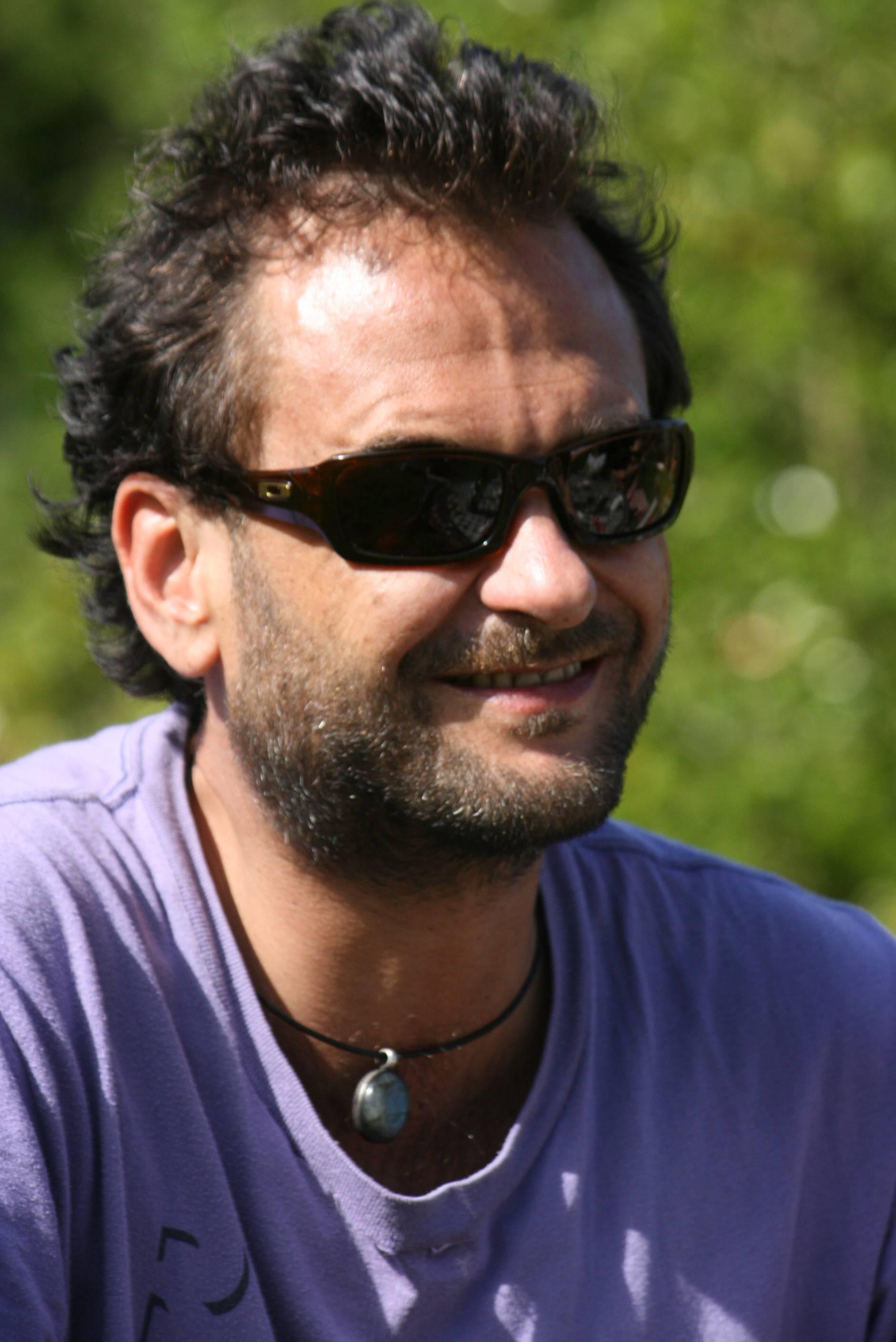 Rory Spowers[/caption] Rory Spowers is the author of three books: Three Men on a Bike (Canongate Classic Series) (Goodies Inspired), Rising Tides and A Year in Green Tea and Tuk-Tuks: My unlikely adventure creating an eco farm in Sri Lanka. 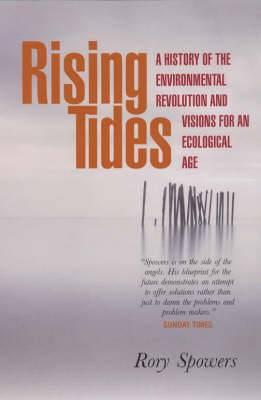 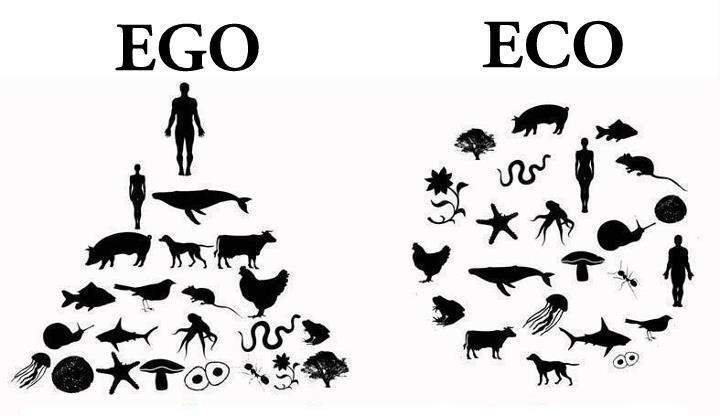
Culture
From Ego to Eco a New Sense of Self
The Ecological Age is dawning with a revolution of consciousness which promises to shatter the grandest illusion of all

Stay connected with other changemakers.
You just read From Ego to Eco a New Sense of Self.
Sign up to stay in touch.
Every week you'll get:
- One dead-simple Nudge that saves money + cuts CO₂
- Monthly Swap challenge with action buddies
- Ad-free site + early access + exclusive community
First 150 members lock in lowest price forever + get the printed manifesto shipped free.
FREE
GET THE DISPATCH
Weekly intel. No spam. Just action.


